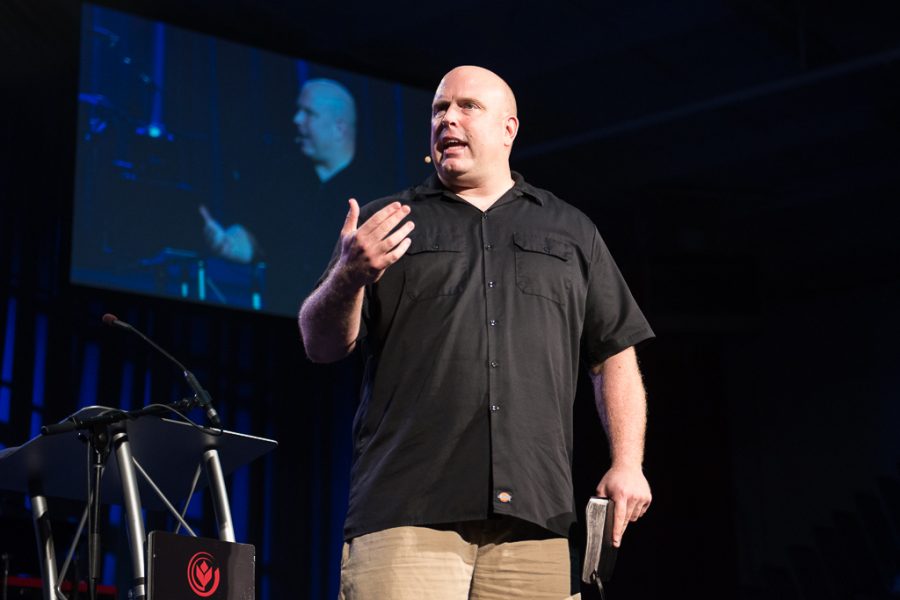Cross-sex friendships. I think this topic has been controversial ever since the first sin. When I heard the title of this workshop, I immediately felt drawn to it. At a time in our lives when I feel like all guys and girls are looking at each other as potential husbands and wives, cross-sex friendships seemed like a completely relevant workshop to attend. Apparently more than half the student body felt the same way; the talk was moved from Sutherland to the gym- and it was still packed.
Jonalyn Fincher, author and Talbot graduate, started by telling the eager audience of a time when she was alone with another man who was not her husband. The encounter made her nervous. Simply the idea of being alone with someone of the opposite sex without a third party has a measure of uncertainty to it.
Then she went on to define lust as looking at someone and imagining having sex with them. “Attraction, enjoying someone else, even thinking someone is beautiful is not necessarily lust,” Fincher said. Jesus was able to be in the company of women and not think of them sexually or objectively, she said.
“Because of Sigmund Freud, I have been taught to suspect all physical attraction with the opposite sex,” she said. “You start to distance yourself from the male members of your family.” This is where the side hug originated, she supposed. Breaking it down for us, she said touch depends on the level of closeness we have with a person. This makes sense, right?
But Jesus broke down this barrier when he said to treat others as brothers and sisters in purity in 1 Timothy 5:2. Since the first sin, men and women have tried to dominate each other, unless we bring Jesus in. Jesus wants to show us how to be friends. “[Cross-sex friends] should not be a stumbling block,” Fincher said. “When a man and woman are friends, it shows us what God is like.”
Fincher went on to say that when we spend time with people of the opposite gender, suspicion often rises. We need to ask ourselves these questions: Does this person help me know more about myself, God, the world and family, and does this person inspire growth in me?
There are 6 ways we should cultivate friendships of the opposite sex:
- They are very similar to same sex friendships: insightful, supportive, comforting, full of perspective, etc. What Ruth said to Naomi in Ruth 1, we can apply it to all friendships.
- They should be natural. You won’t have to force a connection.
- Ask yourself: “Is this person strong enough for a cross-sex friendship?”
- On the subject of what is appropriate to talk about, if a third party enters a deep conversation you are having, does it make you irritated, or does it bring out a side in one of you that is good?
- Is it awkward to touch? Think about the model of family: everyone has a hunger to be touched, to ensure that you are loved. Sometimes it is awkward not to touch at all, as if a spark could ignite between the two of you if you did brush against each other. We are all different, so find what is appropriate for you.
- What is appropriate in terms of modesty? Modesty is relative to who are and what your level of struggle with it is.
Fincher ended with this statement: Let our friendship serve as a model for our marriages, rather than marriage as a model for our friendships.
The audience nodded in agreement.








